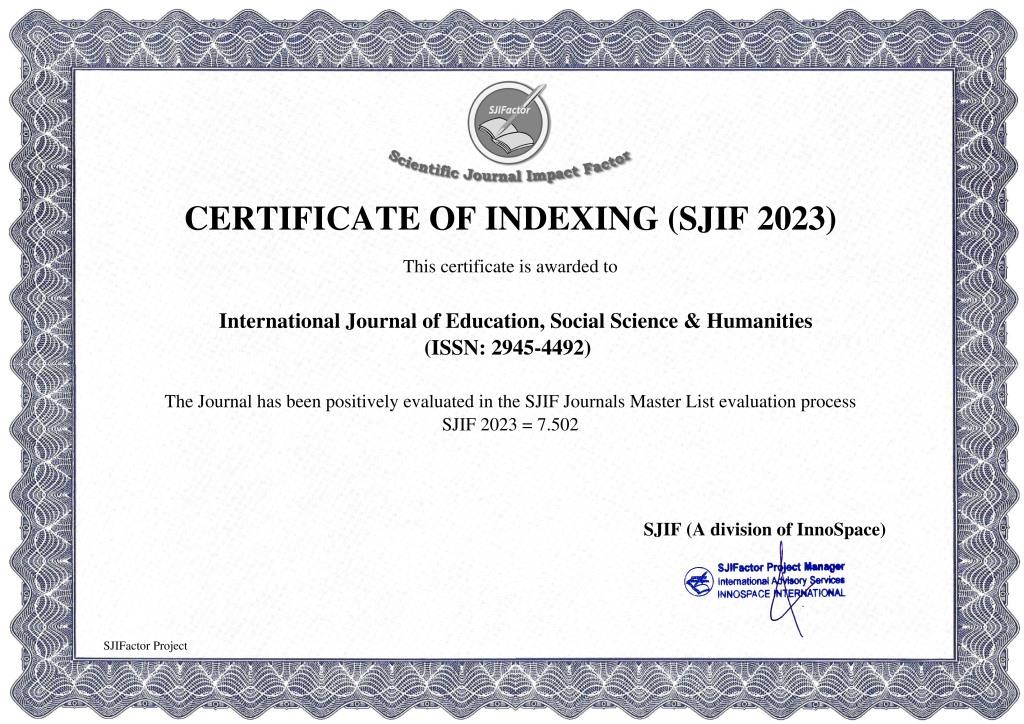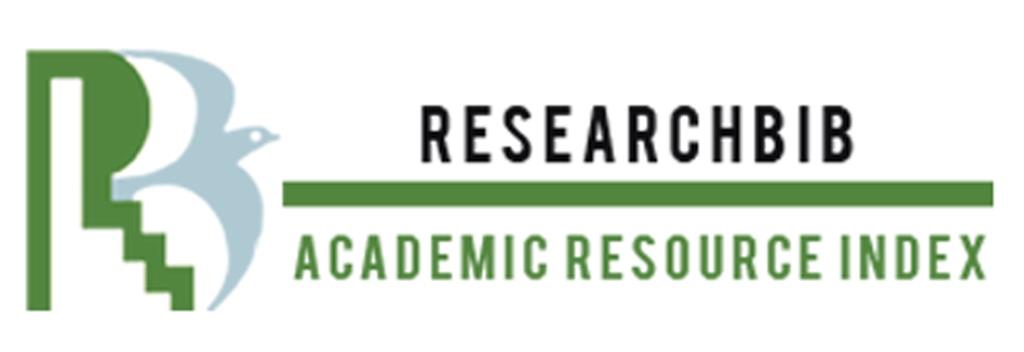THE HISTORY OF TERMINOLOGY IN LINGUISTICS
Keywords:
history of terminology, learning terminology, terminology in linguistics, linguistic terminology, comparative linguisticsAbstract
Language is an essential facet of human communication, and its systematic study, known as linguistics, has a long and illustrious history. This article delves into the captivating evolution of linguistic terminology, tracing its roots from ancient civilizations to the contemporary era. Starting with the earliest inquiries into language in ancient India and Greece, this historical journey explores linguistic terminology through the medieval period's philosophical lenses. It then moves to the Renaissance, where secularism and empiricism began to shape linguistic inquiry. The article highlights influential figures such as Panini, John Locke, and René Descartes and their contributions to linguistic terminology. The 19th century witnessed the emergence of comparative linguistics, led by scholars like Sir William Jones and Franz Bopp, resulting in the creation of terms related to language families, phonological shifts, and etymology. The 20th century ushered in structural linguistics, with Ferdinand de Saussure and Noam Chomsky introducing fundamental concepts like "signifier," "signified," "deep structure," and "surface structure." In the modern era, linguistics has evolved into an interdisciplinary field influenced by psychology, cognitive science, anthropology, and computer science. As a result, new terminology such as "cognitive linguistics," "computational linguistics," and "sociolinguistics" has emerged. This article serves as a testament to the dynamic nature of linguistic terminology and its adaptation to accommodate new theories and insights. By recognizing the contributions of scholars from diverse eras and cultures, we gain a deeper appreciation of how language and its study have evolved to shape our understanding of communication today.
References
Aristotle. (350 BCE). "On Interpretation." [Translated by E. M. Edghill]. Retrieved from https://www.constitution.org/ari/interp.htm
Augustine. (397 CE). "On Christian Doctrine." [Translated by J. F. Shaw]. Retrieved from https://www.newadvent.org/fathers/1202.htm
Bopp, F. (1816). "Über das Konjugationssystem der Sanskritsprache in Vergleichung mit jenem der griechischen, lateinischen, persischen und germanischen Sprache." Frankfurt am Main: Varrentrapp.
Cardona, G. (1988). "Panini: A Survey of Research." Current Issues in Linguistic Theory, 53. John Benjamins Publishing Company.
Chomsky, N. (1957). "Syntactic Structures." Mouton & Co.
Descartes, R. (1628). "Letter to Mesland." [Translated by Jonathan Bennett]. Retrieved from https://www.earlymoderntexts.com/assets/pdfs/descartes1628.pdf
Jones, W. (1786). "The Third Anniversary Discourse." Retrieved from https://www.bartleby.com/271/381.html
Jurafsky, D., & Martin, J. H. (2019). "Speech and Language Processing." Pearson.
Labov, W. (1972). "Sociolinguistic Patterns." University of Pennsylvania Press.
Langacker, R. W. (1987). "Foundations of Cognitive Grammar, Vol. 1: Theoretical Prerequisites." Stanford University Press.
Locke, J. (1689). "An Essay Concerning Human Understanding." Retrieved from https://www.gutenberg.org/files/10615/10615-h/10615-h.htm
Pollock, S. (2006). "The Sanskrit Language." Motilal Banarsidass.
Saussure, F. de. (1916). "Course in General Linguistics." [Translated by Wade Baskin]. Philosophical Library.














